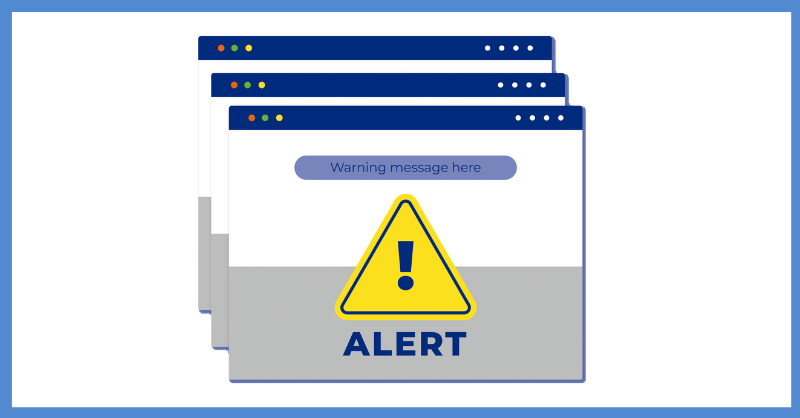We’ve written about real threats and straight solutions to it. In this case, medicine (Rogue Antivirus) is worst than sickness.
Also known as scareware, smitfraud, or rogue security software… It’s contrary to what’s promised.
How do rogue antivirus programs end up on victim machines?
They spread up in the same manner other malware is distributed.
Is it even possible to prevent them, if they look exactly like the “solution”?
How does Rogue Antivirus Software look like?
It can be seen through different shapes (mostly freeware): browser extensions, PDF files, screensavers, anti-virus, or multimedia programs.
And fortunately, almost all rogue antivirus programs share similar features.
The following are the prevalent characteristics of rogue security software:
- Mimics: It is interesting how they actually execute all the Anti-virus common features (scans and alerts) but fail to address the problem (may ask for payment before “solving” it). It just shuts up for a while and asks for money again later on.
- Constant Alerts: Of course, they encourage you to act with endless messages alerts of malware vulnerability. Quite ironic.
- Lagging Device: Exactly as malware, it may slow down your device’s performance, or in many cases, completely freeze it.
- Software Manipulation: Probably the most dangerous feature… Rogue Security software is capable of modifying your anti-virus, forcing you to think that the real one is the actual threat. This makes it even harder to identify.
You know now how it looks like… But how does the Rogue Antivirus runs in the background?
How does Rogue Antivirus Work?
As it was mentioned, Rogue Antivirus programs will not truly clean or scan computers.
Instead, they will persuade you into believing you’re at risk to buy their product.

Take into account that this “Full” or “Premium” version doesn’t work either, and you are only exposing your personal information (credit card number, to name one) to criminals.
The good news is that your computer isn’t infected with a virus like this one… Right?
How can you know?
This trickster may lock your control panel (often only the “Add/Remove Programs” function).
Or it may directly block legitimate anti-virus/anti-malware companies websites.
Knowing how to distinguish rogue programs from the real thing is essential to staying safe.
Being said… Are there any other signs you should be aware of?
How to Detect Rogue Antivirus?
You may come into contact in different ways with Rogue Antivirus.
These 5 crystal-clear signs will help you avoid to fall victim to it:
- Negative Reviews: Be aware of apps that suffer from negative reviews online. This rule applies to Rogue Antivirus and every other software.
- Pop-ups Everywhere: This is probably the most frequent red flag of Malware.
- Unfamiliar Software: Have you encountered notifications from an app you didn’t install? There’s a high chance your device is at risk.
- Browser Changes: Unsolicited changes in your browser may be obvious some times. Other times, may go unnoticed.
- Bad Grammar and Typos: Serious companies hardly permit description errors. Meaning, seeing one or many all over the place, screams scam.
And if you want to be ultra-aware… Here’s a list of common Rogue Antivirus names to avoid.
Unfortunately, most signs only show up after you contracted the infection.
Avoiding malicious downloads altogether is the best defense against rogue antivirus.
How to Avoid Rogue Antivirus?
Getting read of it can be an expensive headache… So take the time to read these useful tips, and avoiding it the contagious in the first place.
- Pick Trustable Brands Only: The contrary to the “negative reviews” to avoid… Here, you can choose between high-quality software that truly identifies incoming threats.
- Keep Everything Up to Date: With everything, I mean your REAL Anti-virus Software, Operating System, and Applications. Eliminate any probable vulnerabilities.
- Cautious Browsing: Do not enter unknown websites and do not click over-promising Advertising. Be aware that not everything on the top of search results is trustable.
- Avoid Suspicious Attachments/Links: Avoid at all costs those files or links that you weren’t expecting to receive. Especially from an unknown contact or address.
How to Remove Rogue Antivirus Software?
If this technology is good enough at bypassing real antivirus detection, then I don’t doubt it will be getting better and better. As well as the number of programs will continue to rise up.
Especially when successful scareware tactics result so lucrative for cybercriminals.
But don’t worry… Nothing will take your precious peace of mind (not even Rogue Antivirus).
Protect your assets with high-end security. You’ll never know if today’s the day you fall into this scam.